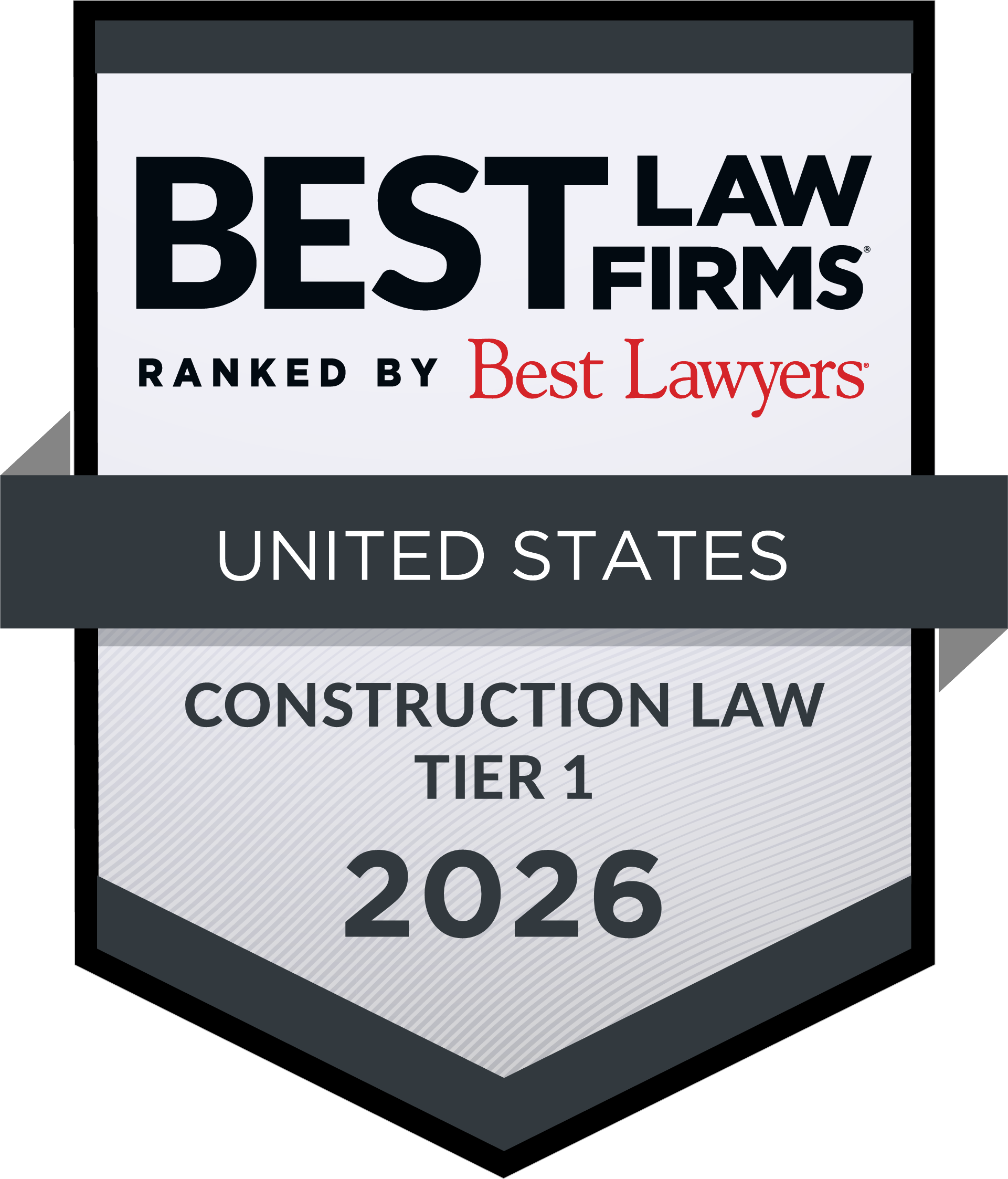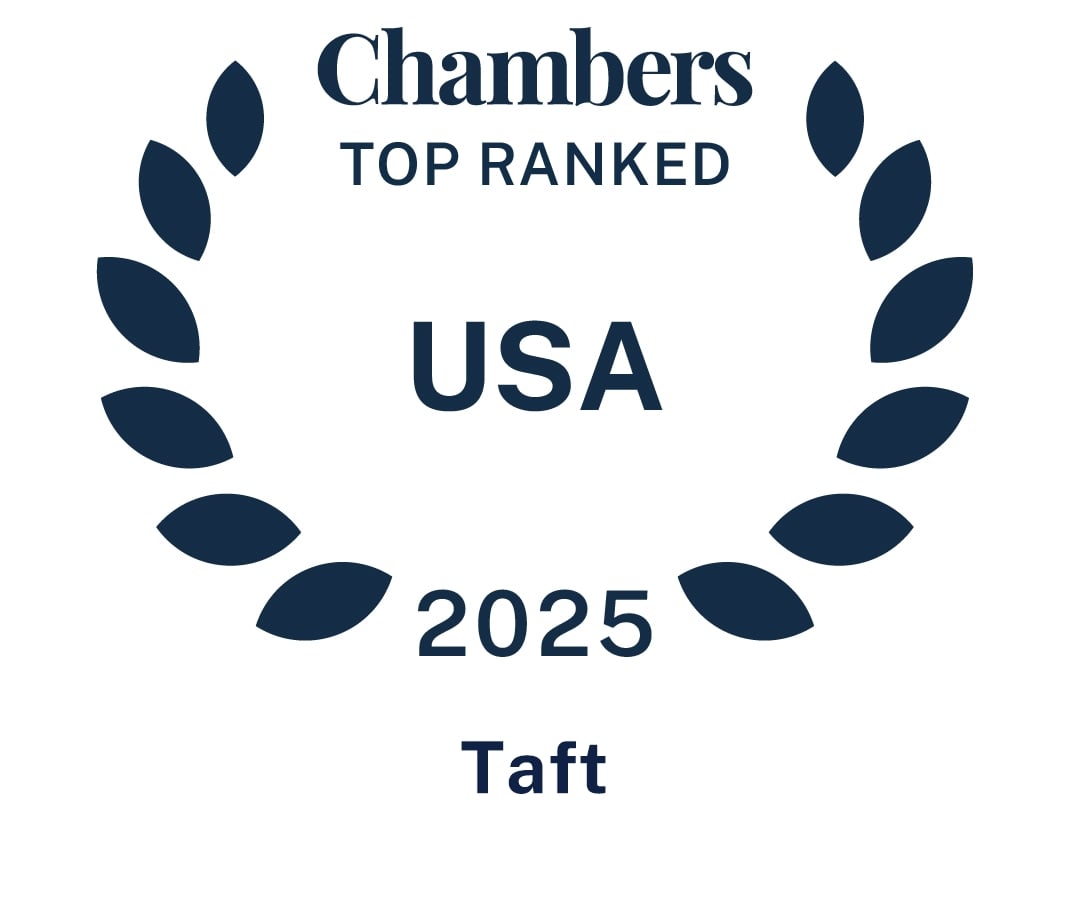News
Construction
Taft’s construction attorneys are the go-to choice to advise construction professionals on all aspects of both public and private construction projects.
Comprehensive Legal and Business Resources
Taft represents construction and development related companies, individuals, and public entities on all aspects of construction projects – from project planning and financing through post-completion disputes. Our goal is to partner with our clients for successful, profitable construction projects. Our construction attorneys know the industry inside-out, advising owners, contractors, design-builders, developers, architects, subcontractors, engineers, and material suppliers on:
- Development and construction contract drafting and negotiation.
- Litigation, arbitration, and in-project or post-project dispute resolution.
- Project feasibility and financing.
- Project delivery method selection.
- Government contract matters, including bidding and bid protests.
- Compliance for public and government-assisted projects.
- Insurance, bonds, and indemnity.
We work with our clients to implement approaches that minimize disputes and to negotiate workable settlements when disputes arise, and our construction litigation attorneys have achieved successful results before courts, arbitrators, and contract appeals boards with respect to all types of claims, including scheduling delays, payment disputes, defect allegations, permitting issues payment, performance and insurance coverage disputes.
We help our clients determine the most effective contracting approach to achieve project objectives, such as integrated project delivery, CM at risk and other non-traditional contracting structures, wrap-up insurance programs, building information management (3D project models), “lean construction” or enhanced participation of disadvantaged business entities.
Our construction attorneys also coordinate closely with other Taft attorneys who have extensive experience in other aspects of construction project development, including project feasibility, tax considerations, brownfields and other environmental issues, land use, zoning, joint ventures, financing options and negotiations, governmental incentives, wind, and solar, and leasing. Collaboration among our various teams is key to our clients’ success. Taft’s construction team, which includes former contractors, engineers, and government attorneys, possesses industry insight and experience to guide clients through the entire construction process—from contract negotiation to pre-construction issues, OSHA inspections, and claims of all kinds.
Deep Industry Knowledge and Experience
Our experience in construction is broad and deep. We have represented some of our construction-related clients for decades. As a result, we know the industry’s economics and key players well, and we often help our clients make valuable business connections. Among many others, we represent major regional general contractors and owners who we have assisted with every phase of $100 million plus projects to build or expand hospitals, casinos, office facilities and sewage systems. We have also worked on projects to build or expand stadiums, military facilities, water plants, and schools. Private projects include development and construction of numerous commercial, residential, hotel, industrial, mixed-use and entertainment properties, both locally and nationally. Members of our team have experience negotiating government contracts and handling bid protests, construction-related disputes, and suspension and debarment proceedings. We advise clients on entity creation, project delivery methods, and insurance programs, including wrap-ups, safety and health programs, and many other matters.
Related Practices
Related Industries
Awards

Ranked National Tier 1
by Best Lawyers® 2026
“Best Law Firms”
Ranked as a “Leading Law Firm” by Chambers USA for Construction Law in Colorado and Ohio
Notable Matters
- Represented developer in development of $91 million mixed use project in the City of Detroit, Michigan.
- Represented owner in construction planning for $30 million condominium project in the City of Royal Oak, Michigan.
- Represented owner in construction planning for $23 million public recreation project in the City of Detroit, Michigan.
- Represented developer in negotiating development management agreement for combined sports headquarters and athletic medicine facility in the City of Detroit, Michigan.
- Represented owner in negotiating a $7 million design-build agreement for a 130,000 square foot research center in Cincinnati, Ohio.
- Represented owner in negotiating a design-build agreement for a 1,000,000 square foot distribution center in DuPont, Washington.
- Represented owner in negotiation construction contract for $36 million industrial facility in Evergreen Park, Illinois.
News
Taft Partners Named to AZ Big Media’s Top 100 Lawyers in Arizona for 2026 List Law Bulletins
From No-Shows to Notices: A Guide to Navigating Labor Disruptions News
Singer Elected to Another Three-Year Term with AIA Chicago’s Board of Directors News
Singer and Gambill Present at Construction Super Conference News
Rankins Inducted into Society of Illinois Construction Attorneys Law Bulletins
Five Critical Construction Contract Provisions Every Project Owner Should Consider






































































































